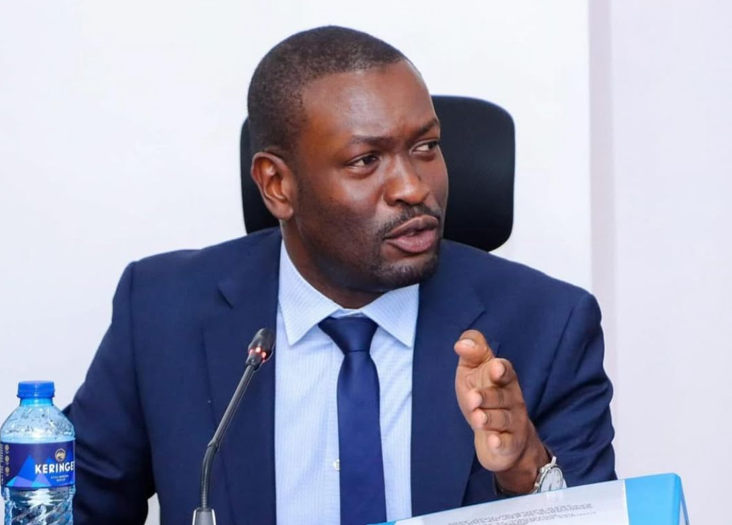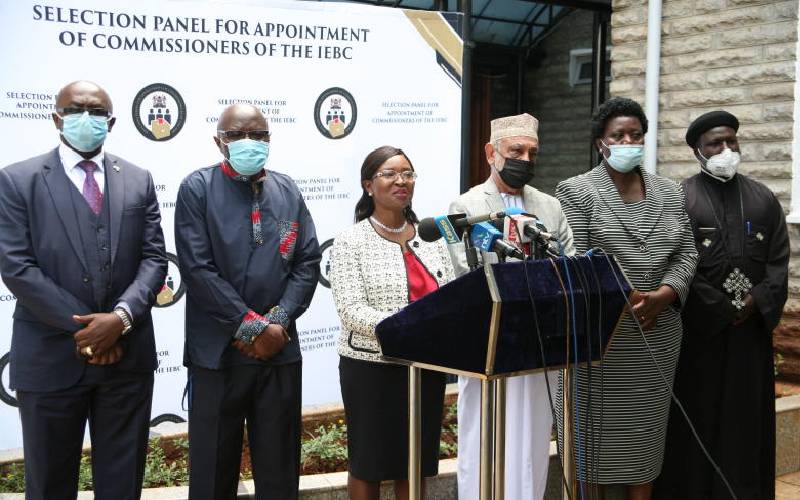Uhuru nominates four to be IEBC commissioners after decision by interviewing panel
By Collins Osanya, August 5, 2021President Uhuru Kenyatta has nominated four candidates who were interviewed to fill the vacant positions of the Independent Electoral and Boundaries Commission (IEBC) commissioners.
Uhuru forwarded the names of Juliana Cherera, Francis Wanderi, Irene Cherop and Justus Abonyo to the National Assembly’s Justice and Legal Affairs Committee (JLAC) following the intensive selection process by a seven-member panel chaired by Dr Elizabeth Muli.
On July 24, the panel concluded the rigorous 12-day selection process that saw 36 shortlisted candidates interviewed out of 660 who had applied for the job.
Juliana Cherera, a former teacher, has served as an accounting officer in the executive.
During her interview, Cherera told the panel that IEBC should come up with process of monitoring deaths of registered voters to avoid criticism and allegations of irregularities during each election cycle.
“The office that registers deaths should be inter-connected electronically with the IEBC so that when a death has occurred, the commission will get an alert immediately and scrap them from the voter register,” she said.
The second nominee is Francis Wanderi, a former Chairperson of the Export Processing Zones who promised the selection panel that he would deal with the issue of voter apathy in the country.
Wanderi said he will look for ways to ensure enforcement of voter bribery through partnership with security agencies, the Ministry of Interior, and the Judiciary.
“I would seek for interrogation between enforcing agencies and support and create legislation that will make someone pay for bribing voters, it is there but enforcement has been a problem,” Wanderi said.
On the other hand, Justus Abonyo, said the country should consider adopting block chain technology which would reduce the cost of running an election by up to 300 per cent.
In his argument, Abonyo said that block chain technology enhances efforts to move to electronic voting and offers greater security and transparency, which increases the needed trust in election systems.
“The cost of a ballot in Kenya ranges between US$ 7-US$ 25 (Sh700-Sh2,500). If we use block chain technology, this cost will go down to US$0.5 (Sh50). This is an area I would explore as a commissioner,” Abonyo said.
The fourth Nominee, Irene Cherop Masit, is board member of the National Government Constituency Development Fund (NGCDF).
While arguing her case before the selection panel, Cherop said most women across the country do not have the economic muscle to vie for seats yet they have the potential of being good leaders.
“If it is was possible, women should be supported financially, there should be a kitty that will support women who lack economic support to the campaign,” she said.” Where it’s difficult to get that fund, the two-third gender rule should be fully effected in parliament because women are very good leaders, they are fair and it’s very difficult to bribe women.”
More Articles

